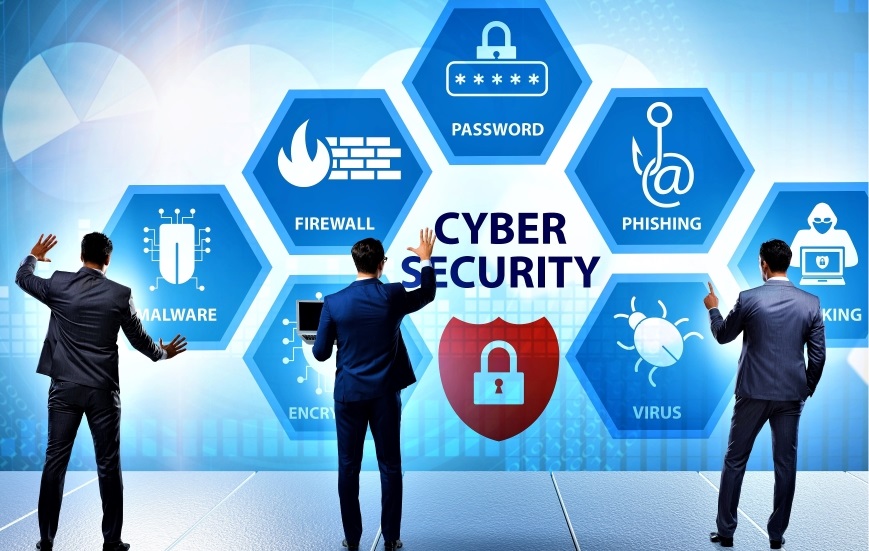Cybersecurity tips for SMEs that won’t break the bank

According to Flanders Investment & Trade, the cybersecurity market in Belgium will reach 794 million € by 2022. This complies with the digitization process that develops faster by the day, thus increasing cyber threats. And, if your business gets access to new technologies, so do hackers; the cyber risks are higher than ever before.
But, how does that apply to your business? What is a threat? How do you prevent it? Where do you begin?
Let us start from the beginning …
What is a threat?
In a cyberattack, a variety of assets can be undermined. Things like your money, data and IT equipment are at risk. If hackers gain access to your network, they can do a lot of damage with assets stolen from your services, such as your company’s banking details, information about your production processes or payment and personal details of your customers.
Ransomware: the biggest threat of them all
A network hostage situation is currently the greatest threat to Belgian companies. Ransomware is a malicious software that encrypts users' data. In extreme cases, the ransomware blocks access to the computer system by also encrypting data that controls the ability of the whole system to operate as intended. Cyber criminals infect corporate networks with ransomware in an attempt to get ransom money. Only when this is paid will they release the cracked data and access to the system again.
Develop a security strategy to fit your business
Identifying robust organizational processes and the data at risk in your business is crucial: this will include measures that can help in protecting against most risks. For example, do you have guidelines regarding passwords for your company? As simple as this sounds, ensuring safety of all your accounts starts there. Choosing strong, unique passwords that are not identical throughout all activities of your business is essential. To go further, you could also make sure that passwords are changed every three months.
Your security strategy should also state what can and cannot be shared via emails. With GDPR, sharing customer data through emails is forbidden as it is not considered secure enough. In case of breach, your organization can be fined up to 4% of its annual global turnover or 20 million € (whichever is greater).
Finally, are employees taking their laptop out of the office? How is it protected? Does it automatically log the user out after a certain amount of time?
There are a lot of easy ways to develop a security strategy that doesn’t necessarily require a whole lot of investment at first. Tactical guidelines that any collaborator can apply on a daily basis is a great start.
Speaking of collaborators: are they on board?
Studies have shown the weakest link in data security are often the employees. It is therefore important to make sure your collaborators are fully informed about the strategy and what is expected of them to help keep the business safe.
For example, if they set up their email account on their personal device, it is important for your collaborators to understand that they have to protect their devices at the company’s standards.
Every new collaborator should get an onboarding session about the security strategy you developed (no matter how simple it is) and sign a document assessing that they will follow it.
Anti-virus software: have one
Anti-virus software that can protect all your devices against viruses, spyware, ransomware and phishing are the basic essentials to protect your business online. Make sure that the software not only offers protection, but also has technology that allows you to clean computers if necessary and reset them to their previous state.
Additionally, it is key to keep the software used to run your business up to date. Every program needs to be updated regularly to make it stronger or add patches that close the code gaps that allow hackers to slip in.
Be prepared for an incident
If a cyberattack occurs in the worst-case scenario, data can be hacked or deleted. Would your enterprise be able to continue operation in such an event? Given the amount of data that may be stored on laptops and mobile phones, most businesses would not be able to continue functioning.
Rely on a backup program that can automatically save copies of your files. After an attack, you will be able to swiftly restore all your assets with these backups. Set up a program that gives you the option to schedule or automate the backup process, so you don't have to create manual backups. Additionally, keep copies of the backups offline, so that they don't get encrypted or inaccessible if your system suffers a ransomware attack on online servers.Monitor your data
Monitor your data
A cyberattack can be silent and unseen. It is important to monitor the activities around your data. But this is not always an easy nor a cheap task. In fact, cybersecurity companies offer an average service of 20€ per month to monitor your data online. This is where Aion Bank comes to help you. Within the 19€ monthly premium subscription that already involves all your daily banking activities, you also get access to MAX Security: this service monitors your data online, including personal details, company details, home address, email, and credit cards (from whichever bank). You will receive a daily update about all your information online. Should your information be compromised, MAX Security provides you with the best strategy to get back to a secure environment for your data. That’s one way of lifting some of the responsibility you have with your business from your shoulders, don’t you think?
Learn more about MAX Security at: https://aion.eu/be-fr/max-security.
